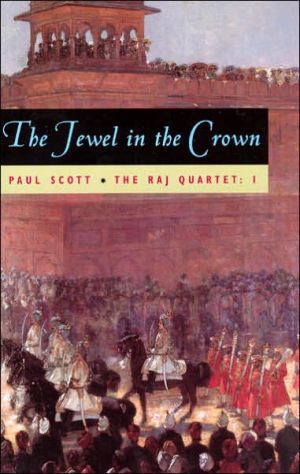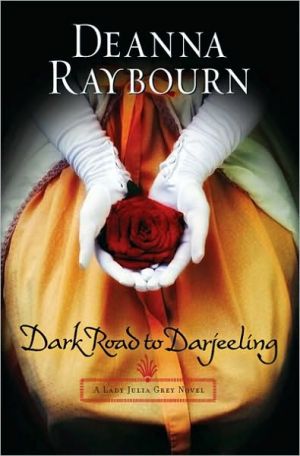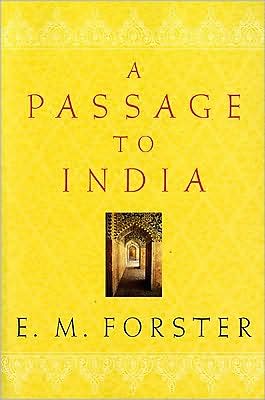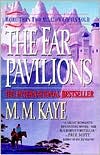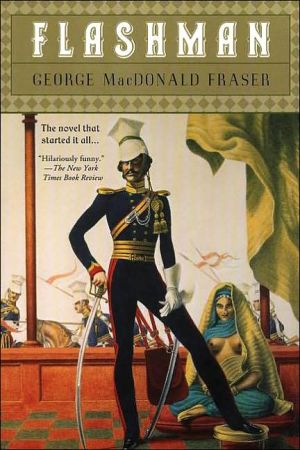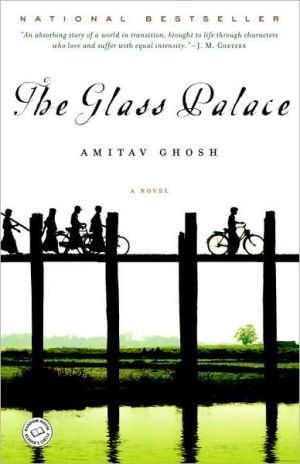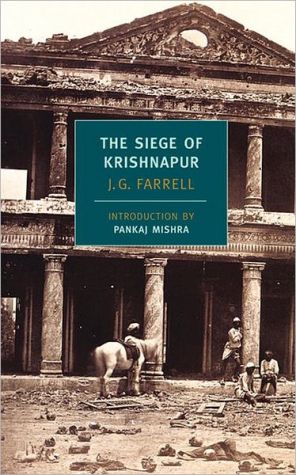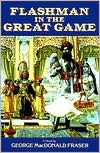Jewel in the Crown (The Raj Quartet, Volume 1)
No set of novels so richly recreates the last days of India under British rule—"two nations locked in an imperial embrace"—as Paul Scott's historical tour de force, The Raj Quartet. The Jewel in the Crown opens in 1942 as the British fear both Japanese invasion and Indian demands for independence. On the night after the Indian Congress Party votes to support Ghandi, riots break out and an ambitious police sargeant arrests a young Indian for the alleged rape of the woman they both love.
Search in google:
No set of novels so richly recreates the last days of India under British rule—"two nations locked in an imperial embrace"—as Paul Scott's historical tour de force, The Raj Quartet. The Jewel in the Crown opens in 1942 as the British fear both Japanese invasion and Indian demands for independence. On the night after the Indian Congress Party votes to support Ghandi, riots break out and an ambitious police sargeant arrests a young Indian for the alleged rape of the woman they both love. Booknews Reprint of the 1966 edition which is cited in as part of the . Annotation c. by Book News, Inc., Portland, Or.
\ The Raj Quartet\ \ \ \ By Paul Scott\ \ \ University of Chicago Press\ \ \ \ Copyright © 2003\ \ \ University of Chicago\ All right reserved.\ \ ISBN: 0-226-74340-3\ \ \ \ \ \ Chapter One\ \ \ Imagine, then, a flat landscape, dark for the moment, but even so conveying to\ a girl running in the still deeper shadow cast by the wall of the Bibighar\ gardens an idea of immensity, of distance, such as years before Miss Crane had\ been conscious of standing where a lane ended and cultivation began: a\ different landscape but also in the alluvial plain between the mountains of\ the north and the plateau of the south.\ It is a landscape which a few hours ago, between the rainfall and the short\ twilight, extracted colour from the spectrum of the setting sun and dyed every\ one of its own surfaces that could absorb light: the ochre walls of the houses\ in the old town (which are stained too with their bloody past and uneasy\ present); the moving water of the river and the still water of the tanks; the\ shiny stubble, the ploughed earth, of distant fields; the metal of the Grand\ Trunk road. In this landscape trees are sparse, except among the white\ bungalows of the civil lines. On the horizon there is a violet smudge of hill\ country.\ This is the story of a rape, of the events that led up to it and followed it\ and of the place in which it happened. There are the action, the people,and\ the place; all of which are interrelated but in their totality incommunicable\ in isolation from the moral continuum of human affairs.\ In the Bibighar gardens case there were several arrests and an investigation.\ There was no trial in the judicial sense. Since then people have said there\ was a trial of sorts going on. In fact, such people say, the affair that began\ on the evening of August 9th, 1942, Mayapore, ended with the spectacle of two\ nations in violent opposition, not for the first time nor as yet for the last\ because they were then still locked in an imperial embrace of such long\ standing and subtlety it was no longer possible for them to know whether they\ hated or loved one another, or what it was that held them together and seemed\ to have confused the image of their separate destinies.\ In 1942, which was the year the Japanese defeated the British army in Burma\ and Mr Gandhi began preaching sedition in India, the English then living in\ the civil and military cantonment of Mayapore had to admit that the future did\ not look propitious. They had faced bad times before, though, and felt that\ they could face them again, that now they knew where they stood and there\ could be no more heart-searching for quite a while yet about the rights and\ wrongs of the colonial-imperialist policy and administration.\ As they were fond of putting it at the club, it was a question of first things\ first, and when they heard the Miss Crane, the supervisor of the district's\ Protestant mission schools, had taken Mr Gandhi's picture down from the walls\ of her study and no longer entertained Indian ladies to tea but young English\ soldiers instead, they were grateful to her as well as amused. In peace time\ opinions could be as diverse and cranky as you wished. In war you had to close\ the ranks; and if it was to be a question of sides Miss Crane seemed to have\ shown at last which she was really on.\ What few people know was that the Indian ladies themselves had taken the\ initiative over the question of tea on Tuesdays at Edwina Crane's bungalow.\ Miss Crane suspected that it was the ladies' husbands who had dissuaded them\ from making the weekly appearance, not only because Mr Gandhi's picture had\ gone but in case such visits could have been though of, in this explosive\ year, as a buttering up of the raj. What hurt her most was that none of the\ ladies had bothered to discuss their reasons with her. They had one by one or\ two by two just stopped coming and made feeble excuses when she met any of\ them in the bazaar or on her way to the mission school-rooms.\ She was sorry about the ladies whom she had always encouraged to be frank with\ her, but not at all sorry about Mr Gandhi's portrait. The ladies had an\ excuse. Mr Gandhi did not. She believed he was behaving abominably. She felt,\ in fact, let down. For years she had laughed at Europeans who said that he was\ not to be trusted, but now Mr Gandhi had extended what looked like an open\ invitation to the Japanese to come and help him rid India of the British -\ and if he thought that they would be the better masters then she could only\ assume he was out of his sense or, which was worse, revealing that his\ philosophy of non-violence had a dark side that added up to total invalidation\ of its every aspect. The Japanese, apparently, were to do his violence for\ him.\ Reacting from her newly found distrust of the Mahatma and her disappointment\ in the behaviour of the ladies (the kind of disappointment she had actually\ become no stranger to) she wondered whether her life might not have been spent\ better among her own people, persuading them to appreciate the qualities of\ Indians, instead of among Indians, attempting to prove that at least one\ Englishwoman admired and respected them. She had to admit that a searching\ analysis of her work would show that in the main the people she had got on\ with best of all were those of mixed blood; which seemed, perhaps, to\ emphasise the fact that she was neither one thing nor the other herself - a\ teacher without real qualifications, a missionary worker who did not believe\ in God. She had never been wholly accepted by Indians and had tended to reject\ the generality of the English. In this there was a certain irony. The Indians,\ she though, might have taken her more seriously if she had not been a\ representative of the kind of organisation they were glad enough to make use\ of but of which old suspicions die hard. By the same token, if she had not\ worked for the mission she would, she believed, never have acquired an\ admiration for the Indians through love and respect for their children, nor\ been led to such sharp criticism of her own race, in whose apparently\ neglectful and indifferent care the future of those children and the present\ well-being of their parents were held. She had never been slow to voice her\ criticism. And this, possibly, had been a mistake. The English always took\ such criticism so personally.\ \ * * *\ Part Five: Young Kumar\ from The Jewel in the Crown, pages 201-2 and 227-28\ When Hari Kumar's father died of an overdose of sleeping pills in Edinburgh\ and the lawyers told him that there wasn't even enough money to pay in full\ what was owed to Mr and Mrs Carter who ran the house in Berkshire he rang the\ Linseys and asked them what they thought he should do. Although the lawyers\ insisted that he could put the notion right out of his head he had an\ old-fashioned idea that he was responsible for his father's debts, if in fact\ there were debts. The Lindseys found it as difficult to believe the lawyers'\ tale of bankruptcy as he did himself. They said he must come over to Dibury\ right away and stay with them. He was not to worry, because Mr. Lindsey would\ see the lawyers and get proper sense out of them.\ His father's death occurred in the middle of the Easter holidays of 1938, a\ few weeks before Hari's eighteenth birthday. The Linseys were in Paris when it\ happened. If they had been at home Hari would probably have been with them and\ certainly have had their support at the funeral. He spent most of his\ vacations with the Lindseys. Their son Colin was his oldest friend. He had\ been with them up until the day before they were due to entrain for Paris. If\ his father had not written from Edinburgh and warned him that he was coming\ down to Sidcot and wanted to discuss plans for the future, he would have gone\ to Paris too, relying as usual on the father's agreement in absentia. Instead\ the letter had come and he had gone home and found his father not arrived and\ the housekeeper and her husband, Mr. and Mrs. Carter, in a disagreeable mood.\ He hadn't been expected and the Carters said they knew nothing of his father's\ plans to leave Edinburgh. He did not care very much for the Carters. In Sidcot\ the staff seldom stayed long. The Carters had been in residence for a couple\ of years, which was something of a record. He could not remember how many\ different housekeepers and handyman-gardeners his father had employed. In the\ old days, before he went to prep school and then on to Chillingborough, there\ had been a succession of disagreeable governesses and tutors as well as of\ domestic servants, some of whom made it plain that they preferred to work for\ white gentlemen. The house had never been to him what, since had got to know\ the Lindseys, he had learned to think of us as a home. He saw his father three\ or four times a year and seldom for longer than a week at a time. He did not\ remember his mother. He understood that she had died in India when he was\ born. He did not remember India either.\ The reason he found it difficult to believe what the lawyers told him was that\ there had always seemed to be plenty of money. When he was old enough to\ appreciate the difference in degrees of affluence he realised that the house\ in Sidcot was substantial, bigger and more expensively furnished than the\ Lindseys'; and as well as the house in Sidcot there was a succession of flats\ in London which his father moved into and out of, in accordance with some\ principle Hari did not understand and took no interest in beyond what was\ necessary to record accurately the change of address and telephone number, so\ that his letters should not go astray and he could be sure of going to the\ right place if his father rang the school and suggested lunch in town on\ Hari's way home at the end of term. On such occasions he usually took Colin\ with him. And Colin once said, looking round the sumptuous but unwelcoming\ flat, 'Your father must be stinking rich.' And Hari shrugged and replied, 'I\ suppose he is.'\ This was probably the moment when he began consciously to be critical of his\ father who spoke English with that appalling singsong accent, spelled the\ family name Coomer, and told people to call him David because Duleep was such\ a mouthful. Duleep had chosen the name Hari for his only surviving child and\ only son (the son for whom he had prayed and longed and whose life had now\ been planned down to the last detail) because Hari was so easily pronounced\ and was really only distinguishable in the spelling from the diminutive of\ Saxon Harold, who had been King of the English before the Normans came.\ * * *\ His sharpest memories were of piles of leaves, wet and chill to the touch, as\ if in early morning after a late October frost. To Hari, England was sweet\ cold and crisp clean pungent scent; air that moved, crowding hollows and\ sweeping hilltops; not stagnant, heavy, a conducting medium for stench. And\ England was the park and pasture-land behind the house in Sidcot, the gables\ of the house, the leaded diamond-pane windows, and the benevolent wisteria.\ Waking in the middle of the night on the narrow string-bed in his room at\ Number 12 Chillianwallah Bagh he beat at the mosquitoes, fisted his ears\ against the sawing of the frogs and the chopping squawk of the lizards in heat\ on the walls and ceiling. He entered the mornings from tossing dreams of home\ and slipped at once into the waking nightmare, his repugnance for everything\ the alien country offered: the screeching crows outside, and the fat\ amber-coloured cockroaches that lumbered heavy-backed but light-headed with\ waving feathery antennae from the bedroom to an adjoining bathroom where there\ was no bath - instead, a tap, a bucket, a copper scoop, a cemented floor to\ stand on and a slimy runnel for taking the dirty water out through a hole in\ the wall from which it fell and spattered the caked mud of the compound;\ draining him layer by layer of his Englishness, draining him too of his hope\ of discovering that he had imagined everything from the day when the letter\ came from his father asking him to meet him in Sidcot to talk about the\ future. This future? There had never been such a meeting so perhaps there\ wasn't this future. His father had never arrived, never left Edinburgh, but\ dies in his hotel bedroom.\ \ * * *\ Part Six: Civil & Military\ Edited Extracts from the unpublished memoirs of Brigadier A. V. Reid, DSO,\ MC. "A Simple Life."\ from The Jewel in the Crown, pages 292-95\ Perhaps at this stage I should rehearse exactly what we knew was at stake and\ what we felt the opposition amounted to. In the first place we had our backs\ to the wall in the Far East and had not yet been able to regain the initiative\ and/or end the stalemate in Europe and North Africa. At any moment we expected\ the Jap to commence operations against the eastern bulwark of India. A\ Japanese victory in India would have been disastrous. Lose India and the\ British land contributions to what had become a global war would virtually be\ confined to the islands of our homeland itself, and to the action in North\ Africa, and the main weight of resistance to totalitarianism thrown on the\ Americas. We regarded India as a place it would be madness (as Mr Gandhi\ begged us) to make 'an orderly retreat from'! Apart from the strategic\ necessity of holding India there was of course also the question of her wealth\ and resources.\ So much for what was at stake. As for the opposition, this amounted in the\ first instance to demands (inspired by Gandhi) that we leave India 'to God or\ to anarchy' or alternatively were challenged to hold it against a massive\ campaign of 'nonviolent noncooperation', which meant in effect that the native\ population would go on strike and in no way assist us to maintain the country\ as a going concern from which we could train, equip, supply and launch an army\ to chuck the Jap out of the Eastern archipelago!\ Surely, we thought, men like Nehru would resist such a suicidal design?\ At the beginning of August it looked like a foregone conclusion that Nehru\ had, as we say, sold the pass for reasons best known to himself. He had not\ found in himself the political strength to resist the Mahatma at this moment.\ Everything now depended upon the vote of the All-India Congress Committee on\ Mr Gandhi's Quit India resolution. This was made on August the 8th. Historians\ since have attempted to prove that the passing of the resolution was no more\ sinister than words on paper and that Mr Gandhi hadn't even outlined in his\ own mind the precise course that consolidated nonviolent noncooperation was to\ take. My own belief was and remains that the nonviolent noncooperation\ movement was planned down almost to fine detail by underground members of the\ Congress acting on instructions from those who wished to look publicly like\ that famous trio of monkeys, 'hearing no evil, speaking no evil, seeing no\ evil'.\ \ Continues...\ \ \ \ \ \ \ Excerpted from The Raj Quartet\ by Paul Scott\ Copyright © 2003\ by University of Chicago.\ Excerpted by permission.\ All rights reserved. No part of this excerpt may be reproduced or reprinted without permission in writing from the publisher.\ Excerpts are provided by Dial-A-Book Inc. solely for the personal use of visitors to this web site.\ \ \
\ Booknews Reprint of the 1966 edition which is cited in as part of the . Annotation c. by Book News, Inc., Portland, Or.\ \
